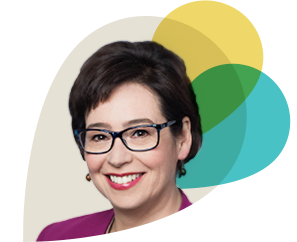Our Founder's Personal Perspective
Anxiety has gone global, infecting not just those predisposed to be sensitive, but those born highly resilient as well. This “virus” is most rampant during the teenage years, where adolescent traits of fearlessness and invincibility have been infected by worry, fear, and the safety of avoidance.
Most scientists agree it takes a millennium to notice an evolutionary change; however, we have seen a significant shift in the prevalence and impact of anxiety in less than a decade. Recent studies show that anxiety disorders have become the most common mental health condition in the United States and Europe across all age groups. Despite this unprecedented rise, most countries and communities have yet to respond in the way they need to.
While there has been an increase in the recognition of anxiety disorders, many professionals rely on conventional talk therapy at the expense of exposure therapy, an indispensable form of cognitive behavior therapy (CBT). Granted, processing the origin, experience, and impact of anxiety is an important educational step. But until the patient learns to increase anxiety by imagining and experiencing their fears, traditional therapy and medication are avoidant strategies themselves.
The real tragedy: anxiety is a highly treatable condition, yet the majority of child sufferers either receive no treatment, or get prescribed a litany of medications to provide short term relief, instead of long term recovery and transformation.
Linda Geiger, CEO & Founder
 When I embarked on the wondrous journey of having children, I was full of hopes and dreams of happiness, fulfillment, and “success” for my children. Like many parents, I had a script on how my children’s lives would unfold, like a screenplay of the various waypoints in life: loving (and exhausting) infancy, joyous preschool up through the challenging, yet manageable high school and entry to a name-brand college.
When I embarked on the wondrous journey of having children, I was full of hopes and dreams of happiness, fulfillment, and “success” for my children. Like many parents, I had a script on how my children’s lives would unfold, like a screenplay of the various waypoints in life: loving (and exhausting) infancy, joyous preschool up through the challenging, yet manageable high school and entry to a name-brand college.
Yet, the course of my family has tacked in a different, arduous, and uncharted direction. I have multiple children that suffer from anxiety disorders. At times, care for my anxious children has taken over our family. We’ve had to rewrite the script, making the storyline so unfamiliar that we’re improvising like no family or friends could ever conceive. No matter how well-meaning the advice, parenting your anxious child is a lonely, frustrating, and heartbreaking endeavor.
My child had such debilitating anxiety by 9th grade, that his world became increasing small. He dropped off his travel baseball team and stopped playing his beloved sport altogether. His social life in the “real world” crumbled; and instead he sought refuge and success in online gaming. Eventually, my funny, smart, beautiful 15-year-old stopped going to school. Alternatively, we cajoled, threatened, bribed, and yelled, but nothing would pry him from his room or our home. My husband and I were crushed by our inadequacy to help our son tap into his potential, and more importantly, live a happy and fulfilling life.
After exhausting all our options for local treatment (1:1 therapy, tutors, small private schools), I embarked on a journey to find specific, anxiety-focused treatment geared for adolescents. My ideal solution was a short term “out-patient” program. I desperately wanted to keep my family intact so I could enjoy the last few remaining years before my son embarked on his college adventure.
Despite my persistence over many weeks of searching, I could not find a single, anxiety-specific private intensive day program anywhere in the United States. While there are some excellent options offered by psychiatric hospitals, I just didn’t want to burden my son with the experience of getting treatment in a psychiatric setting.
My journey ultimately led me to found the Anxiety Institute, driven by my frustration and disbelief at the lack of appropriate outpatient options for adolescents with anxiety. The Anxiety Institute was created to offer the kind of specialized services and programs I so desperately needed for my own child.
Recently, I was asked by a potential investor my rationale for founding the Anxiety Institute. I paused, knowing that she wanted to hear about the opportunity of finding an unserved market and maximizing returns for investors. Instead, I told her what really drives me: I want to prevent other parents from experiencing the frustration and anguish I went through when trying to find high-quality, specialized anxiety treatment for their adolescent and young adult children.
Our mission is to transform the lives of anxiety sufferers and their families by reducing the duration and impact of anxiety and related disorders. Our dream is that your child can live up to their full potential and be the happy, loving child you remember from their childhood.
Take heart. There is hope.
Warmly,
Linda
P.S. We didn’t get money from that investor!

